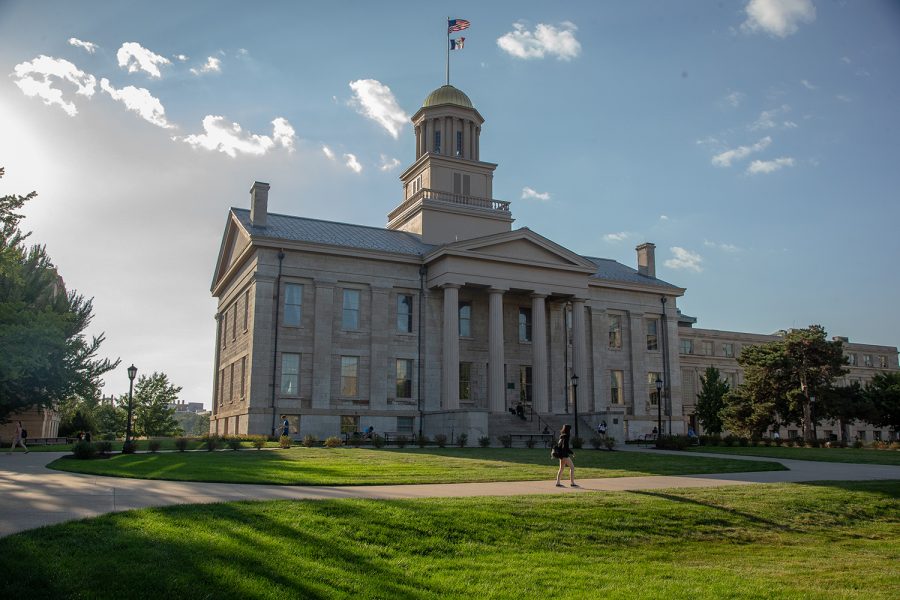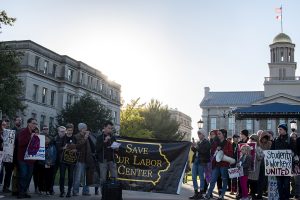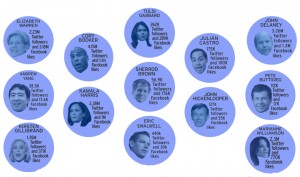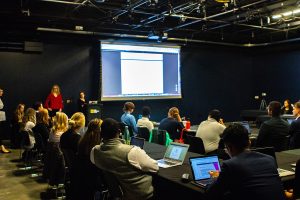UI cancels white privilege workshop following ‘stakeholder concerns’
A white privilege workshop at the UI, which was to be held in late February, has been canceled because of concerns from stakeholders.
The Old Capitol building is seen in 2018.
February 6, 2019
The University of Iowa has canceled a white-privilege workshop, which was scheduled to be held later this month, to give the university time to further understand and address stakeholders’ concerns about the workshop.
The UI has held similar events in the past, but this workshop was organized by a committee of students, staff, and faculty with the assistance of the Diversity Resources Team in the UI Chief Diversity Office, UI spokeswoman Jeneane Beck said in an email to The Daily Iowan.
The workshop is voluntary and is not an academic class, Beck said, and there is no cost associated with holding the workshops.
“The workshops first began in the spring of 2017 and were developed at the request of faculty and staff members who identify as white and had attended other training sessions related to race and specifically wanted an opportunity in which to discuss ways to support inclusiveness,” Beck said.
One reason for the workshop’s cancelation, she said, was because of backlash from lawmakers and news sources.
For example, right-wing news and commentary website Breitbart News Network wrote about a 2017 white-privilege workshop at the UI. As of 6 p.m. Tuesday, one article had 973 comments ranging from supportive to critical.
“In preparing for this year’s workshops, it became clear the university needed to do additional work to educate our broader community and stakeholders about the purpose of these events, which has been misconstrued by online publications,” she said.
These news sources, Beck said, led some university stakeholders to have concerns about the content of the workshop.
“During the workshop, facilitators discuss the history of race in the United States and present case scenarios, bystander skills, and strategies on supporting inclusivity,” Beck said. “Participants then have an opportunity to discuss their individual experiences with race and experiences at the University of Iowa.”
Other universities and colleges in Iowa have hosted similar events about educating the community on race and promoting awareness of privilege. Drake University hosted a white-privilege conference in 2017. Coe College, in Cedar Rapids, has also hosted a white-privilege conference.
Eddie Moore Jr., who has received a Ph.D. from the UI and has hosted similar events in Iowa City, said he was disappointed when he heard the university canceled the workshop.
Coe’s workshop is part of a conference Moore developed, which has no connection to the UI’s workshop.
“I feel like these are the kinds of conversations we need to continue to provide on college campuses,” he said. “… I’m disappointed also because it’s my alma mater. I thought if anyone could allow these conversations to happen in the state, it would be the University of Iowa.”
Related: Workshop confronts white supremacy at UI
Moore, who founded The Privilege Institute — a Wisconsin-based organization that focuses on inclusiveness and privilege education and training — said he was disappointed in the UI’s decision. However, he said, he understands that there may have been external forces that contributed to its cancelation.
“It could be the current political climate. I mean, we can’t go without considering that as a part of what could be connected to the concerns [shared by lawmakers],” he said. “There needs to be a place where tough conversations about tough topics can be had …”
Drake religion Professor Jennifer Harvey, who attended that university’s event, said she was shocked to hear about the UI’s cancellation.
“There couldn’t be a more urgent time for intensive focus on white privilege — which is a critical way of growing anti-racism education,” she said in an email to The Daily Iowan.
Although Harvey said Drake received pushback from some alumni, support for the event was “overwhelming.” Overall, Harvey said, the conference was a “transformative” experience for the campus.
Beck said diversity is an issue the campus remains committed to addressing.
“We will continue to work on building awareness and giving our campus community the skills needed to create a more diverse, equitable, and inclusive campus,” she said.






